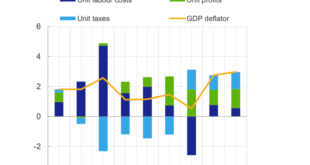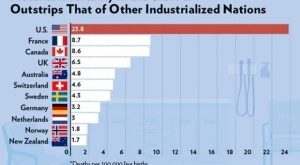from Lars Syll External validity poses a challenge for most kinds of research designs, of course. In true experiments in the social sciences, the study group is not usually a random sample from some underlying population. Often, the study group consists instead of a convenience sample, that is, a group of units that have been “drawn” through some nonrandom process from an underlying population. In other studies, one cannot even readily claim that the study group has been drawn from any...
Read More »Our trip to Nashville ??
Edited by Jason nadir Mitwasi
Read More »COVID and the broken global order
from C. P. Chandrasekhar When the COVID pandemic affected every one of the world’s nations, the way forward seemed obvious, even if difficult to traverse. Given the rapid spread of the disease and its severity that overwhelmed long neglected health systems, and the cost to lives and livelihoods that shutdowns of economic and social activity implied, quick access to drugs and vaccines to manage the pandemic were crucial. Fortunately, government support for biotech research, in general, and...
Read More »real-world economics review issue no. 100
real-world economics review issue no. 100 download whole issue Introduction to RWER issue 100 3 Real Science Is Pluralist issue no. 5 – 2001Edward Fullbrook 5 Is There Anything Worth Keeping in Standard Microeconomics? issue no. 12 – 2002Bernard Guerrien 11 How Reality Ate Itself: Orthodoxy, Economy & Trust issue no. 18 – 2003Jamie Morgan 14 What is Neoclassical Economics? issue no. 6 – 2006Christian...
Read More »Inflation: should we take away the soup bowl?
The graph below has been constructed by economists of the European Central Bank. It’s based on national accounts data. It shows that present day inflation is profit driven, not wage driven. Money flows to profits, not wages. What does this mean for monetary, fiscal and income policy, taking some other aspects of inflation into consideration? Quite a lot. High central bank interest rates have a dual purpose. First, they are intended to show that central banks are serious. Let’s...
Read More »Economics as ideology
from Lars Syll Although I never believed it when I was young and held scholars in great respect, it does seem to be the case that ideology plays a large role in economics. How else to explain Chicago’s acceptance of not only general equilibrium but a particularly simplified version of it as ‘true’ or as a good enough approximation to the truth? Or how to explain the belief that the only correct models are linear and that the von Neuman prices are those to which actual prices converge...
Read More »"Passive Income" discussion on Modern Day Thrive – June 30th, 2022
Talking less about Crypto and more about passive income. The MDT crew is "LIVE" tonight at 7pm. #passiveincome #thrive #smallbusiness #invest #sidehustle
Read More »People are not spending down their savings II
from Dean Baker Last month I wrote a piece where I managed to mangle a very simple point. While the reported saving rate had fallen in April, it was actually due to people paying more capital gains taxes, not the result of households spending down savings. The issue here is straightforward. Saving is defined as the portion of disposable income that is not consumed. Savings can fall either because either consumption has increased, or disposable income has fallen. We are not seeing...
Read More »Maternal mortality in US compared to . . .
The Law of Demand
from Lars Syll Mainstream economics is usually considered to be very ‘rigorous’ and ‘precise.’ And yes, indeed, it’s certainly full of ‘rigorous’ and ‘precise’ statements like “the state of the economy will remain the same as long as it doesn’t change.” Although ‘true,’ this is, however — like most other analytical statements — neither particularly interesting nor informative. As is well known, the law of demand is usually tagged with a clause that entails numerous interpretation...
Read More » Real-World Economics Review
Real-World Economics Review






